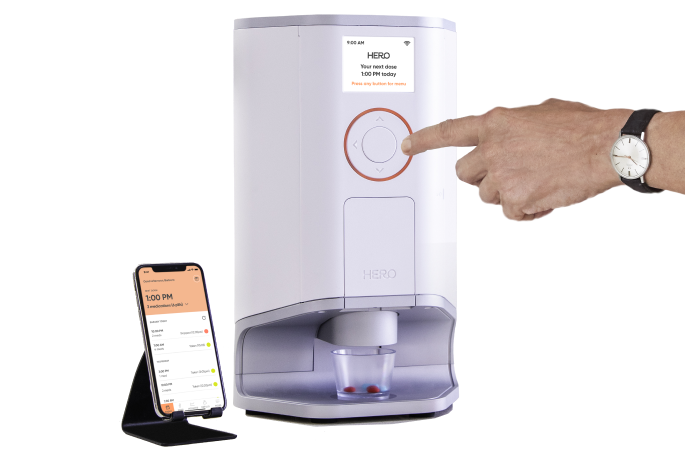Studies confirm that most people prefer to stay in their own home rather than moving to a nursing home or assisted living facility. According to a survey by AARP, 3 out of 4 adults over 50 would prefer to age at home as they enter retirement.
Still, a nursing home or assisted living facility may sometimes feel like a necessary step in order to ensure older adults get the care and support they need. In this article, we'll cover the reasons assisted living should be considered, available alternatives, and ways you can age at home for the long haul.
Why Do Older Adults Enter A Nursing Home or Assisted Living Facility?
While staying at home may seem like the most comfortable option, it does come with its own pros and cons. Although it’s not the first choice for some, many feel the need to eventually enter a nursing home or assisted living facility.
The primary reason older adults opt for these facilities is that they are simply unable to get the care and attention they need in their own home. Changes in mobility, medical conditions, and even access to social activities are some factors that may lead to a decision to move.
Many older adults begin to understand that the quality of their life would improve if they had access to the services of a facility designed for aging adults. For example, some require convenient access to treatment for ongoing medical and physical conditions. As conditions develop, the need for medical care can be too much for loved ones and family members to provide by themselves.
When Should You Consider a Nursing Home or Assisted Living Facility?
Most nursing homes focus on providing all needed services, including in-house medical services. Meanwhile, assisted living facilities are considered for those who don’t require complex medical attention, but still need some help with daily activities. This includes help with daily chores, reminders to take prescribed medication, and access to social activities.
Moving to one of these facilities is a big decision that should not be taken lightly. The changes in lifestyle between aging at home and a nursing home or assisted living facility can be dramatic, and caregivers often think long and hard about what the consequences of such a move would be. The main considerations tend to be access to medical care, economics, social activities, and quality of life.
The truth is, these facilities can offer several amenities that make the trade-off worthwhile for many people.
For some, it might just be more comfortable to live in a place where they can easily socialize with others living in the same community while others take care of household chores. In addition, nursing homes are often chosen because they are equipped to provide qualified medical attention. For those with chronic or long-term conditions that can lead to frequent hospital visits, for instance, they may experience a financial burden that would be better addressed by simply living in a facility designed to offer this kind of treatment in a home-like setting. Such facilities are also ideal for older adults with family members who find themselves unable to provide the daily treatments that an elderly loved one may need, whether it be because they don’t have the proper skills, or because they live too far away from their loved one’s home.
Nursing homes should also be considered when it is not possible to remodel an older adult’s home to meet their needs due to financial or practical considerations. For older adults who may have limited mobility due to arthritis or other conditions, for example, these facilities come with equipment that make moving around much easier.
Are There Alternatives to a Nursing Home or Assisted Living Facility?
For those who are unable to age independently but still want to live at home, home care and home health care are two services designed to help with day-to-day activities.
Home care provides older adults with basic assistance for daily tasks such as bathing, cooking, housekeeping, as well as transportation to and from appointments. Home care aids can also help with finances to make sure bills always get paid, and can even provide reminders to take medication.
Home health care services are used for cases when an older adult requires skilled medical care, such as wound treatment and administration of medication. Unlike home care, home health care aides do not help out with household tasks.
Depending on the medical conditions and level of help needed, it’s possible for older adults to remain in their home and still get all of the care they need.
With an increasingly aging U.S. population, more services like these are becoming available to assist with the transition into older adult living. In turn, family members and other loved ones can feel comfortable knowing that their needs are being met when they are not available.
What Are The Benefits of Aging at Home?
Many simply find it easier and more comfortable to live in their own home than to “start over” in a new place. Assisted living facilities have an institutional feel to some, and older adults sometimes feel that moving to a new community like this would result in a loss of freedom and independence.
Aging at home is the preferred way to retire for most older adults because they can:
- Continue to live in their own home
- Keep housing costs low by staying in a home they own
- Enjoy familiar surroundings with their belongings
- Safety in a familiar place they know
- Stay connected to their local community
- Socialize with neighbors they already know
- Avoid the stress of moving and relocating
Aging at home can also be preferable from a financial perspective. By staying at home, costs are kept lower as older adults and their family do not need to relocate or pay for extra services and accommodation at a new facility.
How Can You Age at Home?
With so many benefits, it’s no wonder so many prefer to age at home. At the same time, it’s important to get medical, social, and household needs met during this time.
For many people, it’s possible to get all of their needs met at home. To do so might require some home modification, such as installing new equipment or getting help from a qualified caregiver who can provide services in the home. Sometimes, all it takes is a simple arrangement with a neighbor or friend to share chores such as grocery shopping or cooking dinner.
Here are some steps for older adults and their caregivers can take to prepare to age at home:
- Identify and install needed equipment to make living at home easier. Some of the changes that older adults typically make to make their home more livable include installing handrails, walk-in showers, ramps, non-slip rugs, and adequate lighting.
- Talk to your doctor about additional support you may need, according to your medical condition.
- See what older adult services your community provides.
- Authorize trusted family members and caregivers to handle bills and other financial matters.
- Partner with neighbors or friends to share household chores.
- Identify providers of home care and home health care.
- See what telehealth services are available to reduce the need to travel.
For many older adults, another important aspect of aging at home is ensuring proper medication management.
Taking medication as prescribed is more important than you may think –– in fact, incorrect medication usage results in an estimated 125,000 preventable U.S. deaths per year. What’s worse, many older adults must take more medications as they age, making medication management an increasingly difficult task.
While some use the classic pill box for their med management and organization, these usually do not allow for highly complex medication schedules, and they can lead to confusion if your regimen is often changed by your healthcare provider. For caregivers, pill boxes also do not allow them to know whether their care recipient took their meds, which can be an extremely stressful experience.
Hero is the ultimate method to streamline your medication management once and for all. Hero’s smart device stores, sorts, and auto-dispenses up to 10 different types of pills at the correct times. The connected Hero app allows members to adjust to receive medication reminders, track their medication adherence with personalized reports, and more. For older adults who need extra assistance with technology, Hero’s service can also be set up by a caregiver, who can receive a call or text if a dose was missed, taken late, or if any medications are in need of a refill.
––––
An older person can enjoy greater freedom and independence by setting up their home and medical care to age at home. There are many resources and tools available to enable this lifestyle; by being proactive, an older person can enjoy retirement in their own home, without the need to relocate.
Complex med schedule? We solved it.
Hero’s smart dispenser reminds you to take your meds and dispenses the right dose, at the right time.

The contents of the above article are for informational and educational purposes only. The article is not intended to be a substitute for professional medical advice, diagnosis, or treatment. Always seek the advice of your physician or other qualified clinician with any questions you may have regarding a medical condition or its treatment and do not disregard professional medical advice or delay seeking it because of information published by us. Hero is indicated for medication dispensing for general use and not for patients with any specific disease or condition. Any reference to specific conditions are for informational purposes only and are not indications for use of the device.




